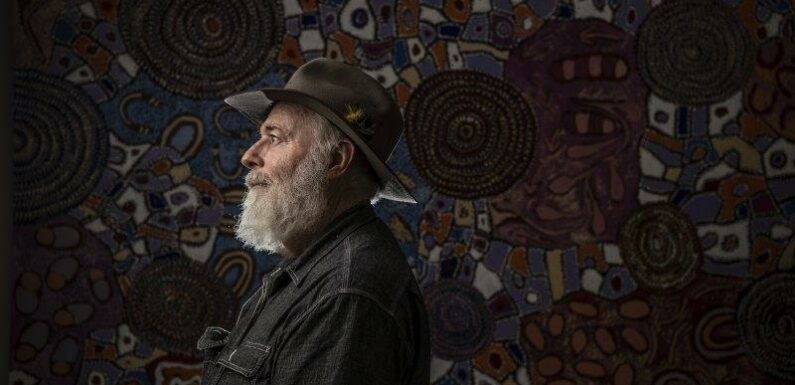
Indigenous recipients of Australia Day honours have mixed feelings about accepting the recognition on January 26, with some humbled but wishing a less difficult day was chosen to celebrate the country they love.
Emeritus professor Richard Howitt, who will become a member of the Order of Australia for services to education and Indigenous affairs, said it was challenging for him to accept the honour on a day many Indigenous Australians view as representative of dispossession.
Emeritus professor Richard Lionel Howitt is an academic and Indigenous activist.Credit:Steven Siewert
“It is galling for someone like me,” the Macquarie University professor said, adding he remained humbled by the recognition. “Some culture warriors insist it is such a sacred day, but it is only relatively recently that it has been gazetted as Australia Day.”
“It does not represent the foundation of the nation of Australia. At the very best it represents the creation of the colony of NSW.”
There are 25 honourees who identify as Aboriginal or Torres Strait Islander this year – representing 3.4 per cent of all recipients, a similar proportion to the 3.8 per cent of Australians who are Indigenous – including singer Archie Roach who has been recognised posthumously.
Four of six First Nations award recipients interviewed said they would prefer the date of Australia day be changed.
And while all but one backed the underpinning principles of the Voice to Parliament, several knew little about it and how it would advance livelihoods, highlighting the vast proportion of Australians yet to grasp the concept.
“Dad believed in a voice for Aboriginal people, Aboriginal people having self-governance and self-determination,” Roach’s son, Amos, said.
Robert Morgan (Officer of the Order), recognised for his leadership in the fields of health and education, First Nations languages expert Denise Smith-Ali (Medal of the Order), and Belinda Duarte (Member of the Order), a sports administrator who has worked at the AFL, agreed it would be ideal if the date shifted.
Duarte said she was blessed to be honoured but felt she needed to separate the recognition from her feelings about January 26.
“I can’t celebrate an individual acknowledgement on a day that for me is anchored much more deeply in my family and First Nations people across this country,” she said.
But Eurobodalla community leader Patricia Ellis (Medal of the Order) said January 26 was unambiguously an important date given the First Fleet arrived on that day in 1788.
“Non-aboriginal Australians have a right to celebrate Australia Day on that date,” she said. “There’s no reason Aboriginal Australians can’t celebrate that we survived, and the rich culture and rich history before European contact survive … To be honest, I think people get too precious about some things.”
Morgan, Smith-Ali and Ellis all stated the purpose and scope of the proposed Voice was vague or that they had not paid much attention to the referendum proposal.
Senator Jacinta Price with her mother, Bess, a former Northern Territory government minister.Credit:Jeff Tan
Morgan said he understood some specifics about the Voice’s size and operation would be decided after a referendum, should it succeed. He said details were vague, but any proposal to empower local Indigenous communities was worthwhile.
Smith-Ali said she had not engaged with the substance of the Voice proposal, but it sounded like a good idea.
Ellis said: “I don’t understand the full context of it but anything that empowers us and gives us a voice is a good thing and well overdue. It is a disgrace we are not recognised in the constitution.”
Only one of the six recipients interviewed, former County Liberal Party politician Bess Nungarrayi Price, opposes the principle of the Voice. Price, made a member of the Order for service to the Territory parliament and community work, also supports the existing date of Australia Day.
The mother of prominent Voice opponent and senator Jacinta Price echoed some conservative and far-left figures by arguing the advisory body would not improve the livelihood of Indigenous Australians and was generated by out-of-touch elites too focussed on symbolism.
“We have a lot of voices; many federal parliamentarians. I’m trying to grasp what are they talking about with this Voice? What more is it going to do for us?” she said.
“It’s always been the same people who’ve banged on about it. [Voice report co-authors] Marcia Langton, Tom Calma, these people who’ve got no clue about what’s happening outside Melbourne Uni or Tom Calma’s office in Canberra. They’ve lost touch.”
Howitt rejected the criticism put forward by Price and Coalition leader Peter Dutton, who has repeatedly raised doubts about the Voice due to what he has argued is a lack of detail about how it will work.
The award winner said the Calma-Langton report contained plenty of detail. “We find there is another sabotage by those who are privileged by colonisation,” Howitt said. “Surprise surprise, we get division yet again.”
The Morning Edition newsletter is our guide to the day’s most important and interesting stories, analysis and insights. Sign up here.
Most Viewed in National
From our partners
Source: Read Full Article

